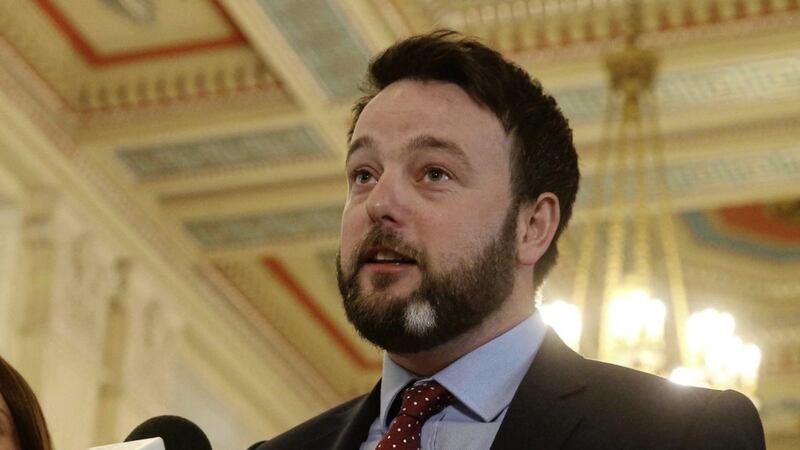Sinn Féin last night said it was interested in forming a "progressive alliance" to fight against a hard Brexit.
The SDLP and the Greens yesterday took the first tentative steps towards agreeing a pact that would run on a ticket opposing the UK's withdrawal from the EU.
However, the prospect of forming a coalition that includes all the north's anti-Brexit parties was dealt a blow yesterday when Alliance leader Naomi Long categorically ruled out her party's involvement.
The East Belfast MLA, who was unseated as an MP in the 2015 general election by a unionist pact, said Alliance would work with other parties on an "issue by issue basis" and would push the case for a special deal for Northern Ireland and "as soft a Brexit as possible" for the UK as a whole.
"However, we will not be entering electoral pacts with any other party," she said.
"If people vote Alliance they will get Alliance – we believe people should decide who represents them, not have it decided for them by politicians."
Following Theresa May's announcement earlier this week of a snap general election, Sinn Féin's Declan Kearney said his party shared much "common ground" with the SDLP, Alliance and Greens on issues such as Brexit, equality and the legacy of the Troubles.
He said parties opposed to a hard Brexit and austerity policies should work together.
Last night, Sinn Féin Upper Bann MLA John O'Dowd said his party would be open to discussions with "the SDLP and others" about forming what he described as a "progressive alliance".
He said Sinn Féin candidates could potentially stand aside in some constituencies.
After holding discussions with the Greens yesterday about the formation of an "anti-Brexit axis", SDLP leader Colum Eastwood said the electorate needed to send Theresa May a clear message that "Northern Ireland is pro-Europe".
"The best way to do that is to tackle the pro-Brexit MPs," he said.
Mr Eastwood said he was disappointed by Naomi Long's remarks but planned to "reach out" to the Alliance leader.
"I’ve opened a discussion on how we can maximise the pro-Europe vote through an anti-Brexit axis. I’ve had a positive conversation with Green Party leader Steven Agnew, I’ll reach out to Naomi Long, in spite of her disappointing rejection of the principle of an anti Brexit movement, and I’ll meet with pro-Europe unionists. We need a broad coalition to take the fight to the Tories. That’s the movement I’m trying to shape.
"Others are talking about narrow pacts to keep one community out, under my leadership the SDLP will never take part in such a nakedly sectarian arrangement," he said.
"We fight sectarianism every day – we will continue to do that."
Green Party leader Steven Agnew joined the call for Sinn Féin to engage in exploratory talks.
He said for such a coalition to be effective it would need to include all the north's main parties who were opposed to Brexit, including Alliance.
"It has to be all or none, otherwise there's no point," he told The Irish News.
Mr Agnew said if Sinn Féin was serious about engaging with other parties ahead of June 8 then it needed to begin those discussions immediately.
"They (Sinn Féin) were the ones who first floated the idea and we don't have a great deal of time between now and June 8," he said.
"You don't make as public statement about forging alliances and then do nothing."
Asked what his party would be seeking in return for joining the coalition, Mr Agnew said the Green's approach to a potential pact was "not about party politics" but about fighting the prime minister's plans for Brexit.
He also said the Greens were willing to support candidates without party political affiliations.
"There will be some constituencies where the choice of candidate will be obvious but in others it may be more suitable to run somebody from outside current elected politics," he said.








